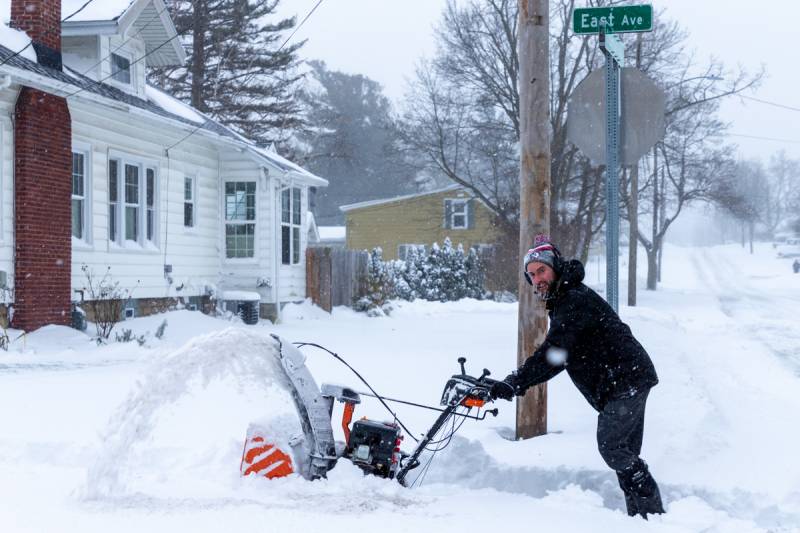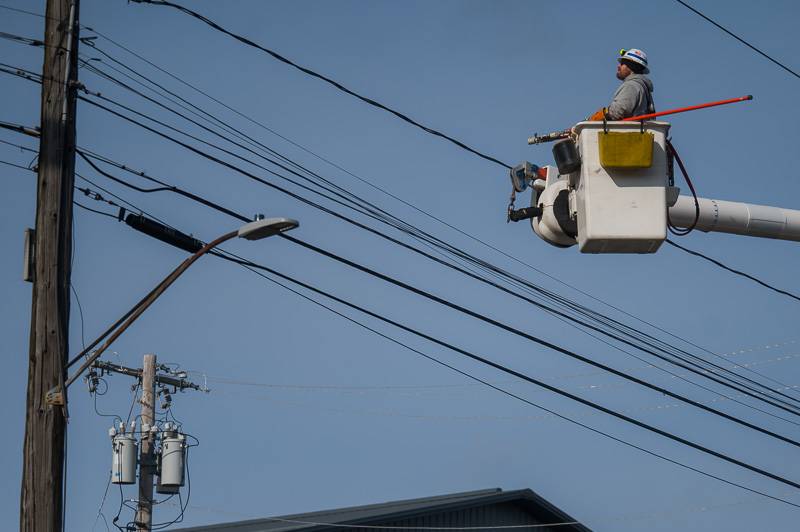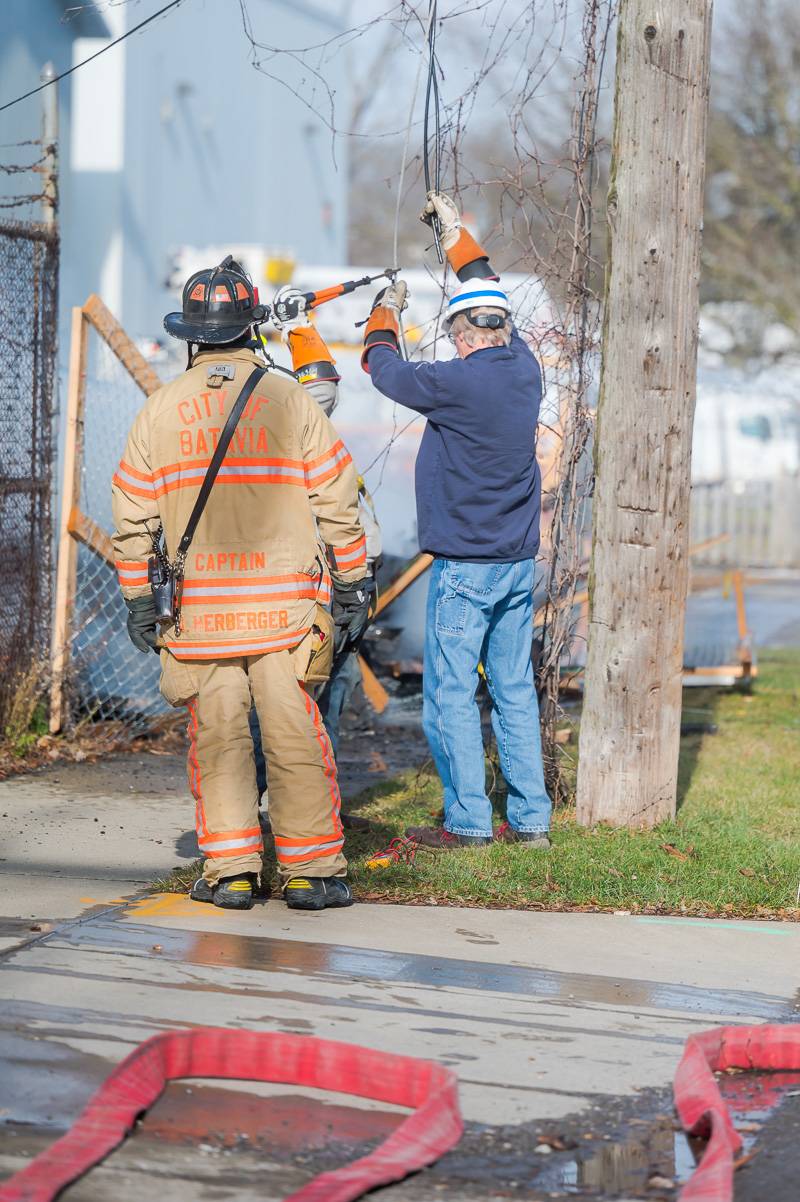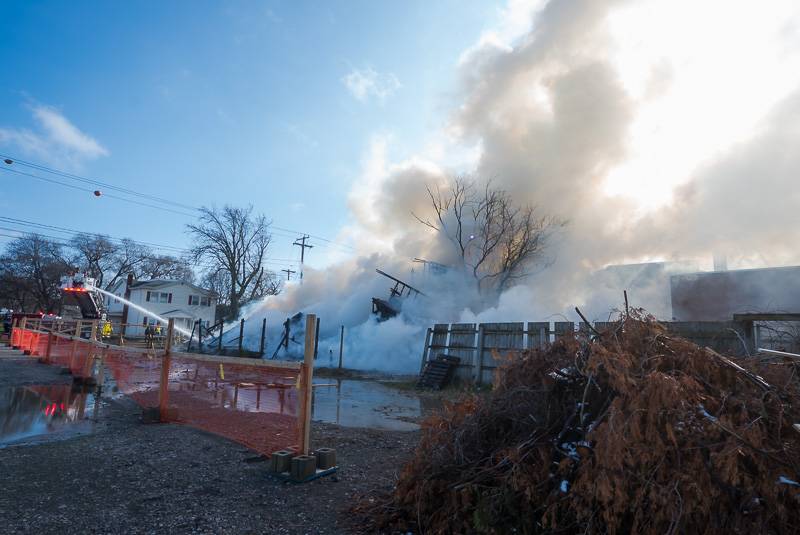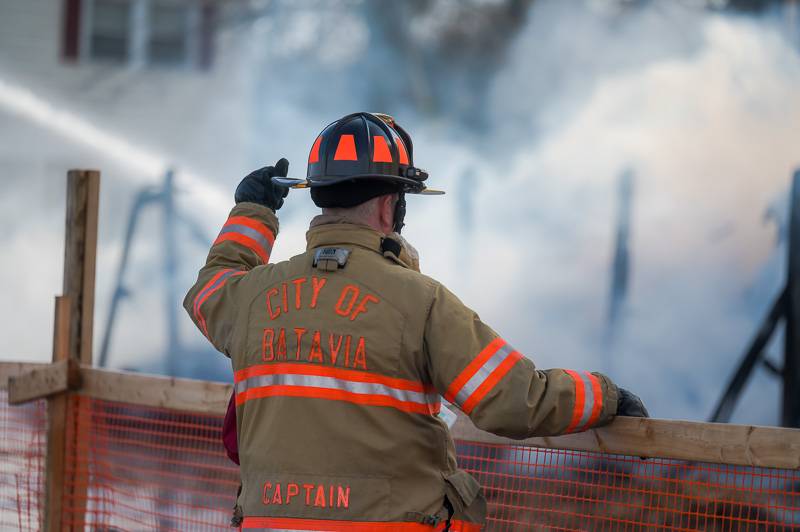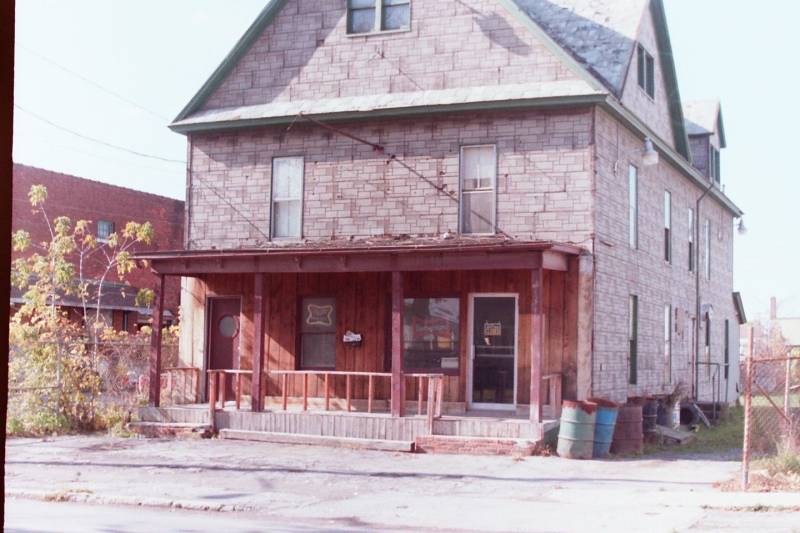Retired minister, author discusses the appeal and tenacity of Methodist circuit riders
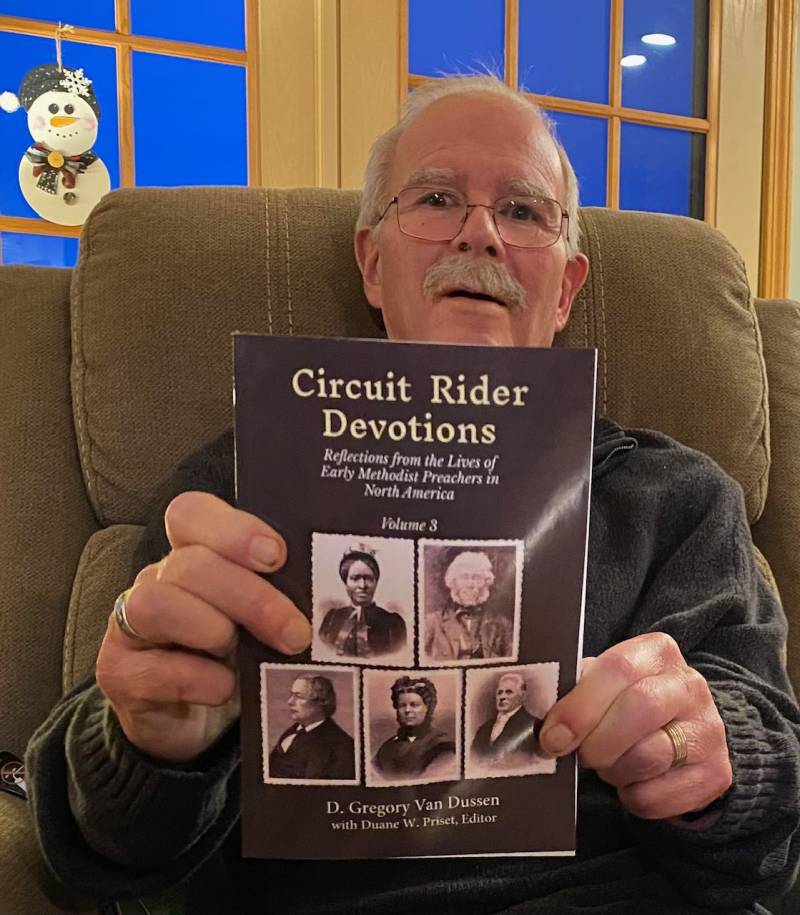
Photo by Joanne Beck.
People began to nudge Greg Van Dussen in the direction of penning a book while he was writing book reviews and articles, but it wasn’t until he retired as a Methodist minister that he began to take them up on it.
“The minute I retired, in 2011, I started writing my first book — Richard Beatty saw me writing notes furiously on napkins — at (the former Coffee Culture) in Batavia,” Van Dussen said during an interview with The Batavian at his town of Batavia home. “One of the results of these books is the parishioners have said they feel like it’s helped them get in touch with their spiritual roots. That feels very fulfilling. My editor has said no one else is doing this kind of writing.”
His third in a trilogy series of “Circuit Rider Devotions,” has just come out, and they are part of several books on the same topic authored by D. Gregory Van Dussen, the long version, though his friends call him Greg.
So what drove him to write not one but three voluminous tomes, each approaching 800 pages, about assorted characters from Methodist upbringings traveling to initiate the denomination’s movement across North America?
“I’ve been really fanatically interested in the subject, it was about early Methodist preachers. For my whole adult life, I've been collecting books. So I've got antique books all over the house, biographies, autobiographies, that sort of thing, hymn books. But what really got me into this was, a few years ago, I was asked to teach a workshop in Buffalo on this subject, and it was very well received. And as I was going home, I wondered if anybody would be interested in a book of devotions based on the lives of these people,” he said. “So I contacted four publishers, and they all turned the idea down. And the final one was accepted enthusiastically. And they've been printing all my books since.”
A native of the Rochester area with roots in the suburbs, including Brighton and Spencerport, Van Dussen has had to pick up and move many times as a minister of 39 years, landing in Batavia three separate times, currently living in the east part of town with wife Jackie. He has also been district superintendent for the 54 regional churches and has been an adjunct professor of worship and Celtic spirituality at Roberts Wesleyan and Irish and American history at Brockport State College.
A rather prolific writer, the 76-year-old has completed seven books with plans for more, even if it means obtaining help through Parkinson’s, a diagnosis he received in 2021.
Any outsider paying attention to the trials of circuit riders — bands of preachers traveling around in the crudest of conditions in the early pioneer days braving the elements of weather, poverty, their fellow man, wild animals and disease — can’t help but see a hint of similarity in the author’s own struggle with an illness that he admits has tested his spirits.
He was assisted with Volume 3 of “Circuit Rider Devotions” by a friend and editor, Duane W. Priset. He is receiving physical, occupational, and voice therapies, enduring time spent at home versus going out into the community in his usual affable way and traveling right now. But as any true circuit rider would have testified, Van Dussen is carrying forth his mission.
“I felt there was a message to get out,” he said. “It’s fulfilling a purpose in my life.”
In the foreword, Priset says that Van Dussen brings the reader “head-to-head and heart-to-heart” with widely-known and lesser-known evangelists, pioneer preachers and their spouses, local pastors, lifelong learners, founders, journalists, editors, bishops, university presidents, theologians, hymnists, and missionaries who, in diverse ways and settings, “refreshed the lives of the people throughout the vast and developing countryside of early North America.”
There are 366 entries, many of them about women — a fact that Van Dussen thought may surprise people, especially given the rough and tumble existence of a circuit rider. But women braved the adversities for Jesus Christ just as much as men did, he said.
There was Julia A.J. Foote, for example, who was not only a woman but an African American, which added another layer of danger and complexity to her task. As with each entry, this one begins with a piece of scripture: "In peace, I will lie down and sleep, for you alone, Lord, make me dwell in safety.” Psalm 4:8.
Van Dussen explains that some people encouraged Foote “on the road of discovery and growth,” as others who often unknowingly sought to block her journey. One group seemed to hold her back, yet, ultimately made her stronger while the other pulled her forward, supplying her with a vision of what God could accomplish through her, he said.
At one point, she shared her first attempts.
“To the glory of God, some did believe and were saved, but many were too wise to be taught by a child — too good to be made better. From this time, many, who had been my warmest friends, and seemed to think me a Christian, turned against me, saying I didn’t know what I was talking about — that there was no such thing as sanctification and holiness in this life — and that the devil had deluded me into self-righteousness. Many of them fought holiness with more zeal and vigor than they did sin.”
Anyone who has enjoyed a “mountain top” encounter with God knows how difficult it can be to relate to someone who has not experienced that, Van Dussen writes. Add to that the understandable incredulity so many have regarding a radical transformation of character, and the skepticism that surfaces when someone young speaks words of wisdom, and you can see what this young woman was up against.”
“Yet when we look at relevant scriptures and read the faith and wisdom in her words, we also can feel the power of her testimony, and rejoice with her,” he writes.
That passage ends with a small prayer in a soothing, formulaic set-up for each entry.
Lord, take away from me both undue skepticism and gullibility as I hear people use words to convey that which is beyond words. Keep before me the truth in scripture and the teaching of your spirit, and grant me your life-giving wisdom as I seek to understand and teach in your church and anywhere else you lead me. Let me read in you, and bring peace wherever I go.
And one by one, stories are told, messages shared, prayers recited and scriptures put to practical use through the real lives of people like Julia Foote. Van Dussen set it up that way to be “manageable chunks" of about a page or page and a half long.
“So that makes it easy for people to get into,” he said. “And I could dig out some of the most interesting parts of what they wrote or what they did, without trying to write full-scale biographies. This book is between the different groups of Methodists. So you might have a Free Methodist, Wesleyan and African Methodist, Episcopal, Canadian residents, whatever, and in the big Methodist church here, and might think they’re all separate and distinct, but they’re also very similar. So this tends to bring the family together, so to speak.”
Those riders would travel 20 miles per day for six to eight weeks at a time in one-year blocks across Canada and the United States, spreading a message, recruiting folks, and opening up Methodist churches. The system was “painfully difficult at times, and tremendously rewarding at other times, he said, while being “very effective in getting the word out and capturing their purpose.”
They developed ways to have connections with one another during the lonely stints on the road, including hosting camp meetings. The closest ones to this area were in a forest in Bergen, with some 16,000 people attending between the years 1850 and 1870, he said.
Those meetings were rivaled as one of the biggest events only by a camp in the back woods of Kentucky, with no bathroom or cooking facilities, he said. That one drew from 20,000 to 40,000 people, and evoked “a lot of emotional response to the preaching.”
Why brave the real dangers of predatory animals and a conflict with native Indians and diseases such as the cholera epidemic of the early 1830s in the Wild West? It was a matter of faith and Biblical principles.
“They were very evangelistic. So they really felt that it was important to get the word out to everybody they could,” he said. “There were some others that were the Baptists were similar in that respect. And that's probably why in the 19th century, the Baptists and the Methodists were rivals to be the largest churches of the country.”
He cited examples of people who stick out in his mind for their impact, including Peter Cartwright, a circuit rider who stayed in a tavern one night when nothing else was available. A woman asked him to dance, and he agreed as long she would pray with him. On their knees, they prayed, and he was “so effective in marshaling the attention of that crowd, that the next day they formed the first Methodist church of that town of 31 people,” Van Dussen said.
He obviously has a command of the material, citing the various real-life characters and situations throughout the book. He also has a passion for the craft, as he plans to pursue his next writing project and navigates the hurdles before him.
“We're pretty active, and I'm very active. And I think I've had to give up, at least temporarily. It’s hard. I can't get to church. I can't get to the coffee shop in the morning. I can't go to somebody's house. I haven't been out of this house since I got back from the hospital in the fall, late summer, August,” he said in his gentle whisper of a voice. “However, I'm determined to progress from this in a positive direction. I was actually in hospice care for a short time this fall, and I graduated from there or flunked out of the program. They said, ‘you’re making way too much progress to stay in our program.’”
He is moving onward to his next book about the relationships between the book characters and how they worked to help, teach and inspire one another. Despite their meager lifestyles while on the road, many of these people were brilliant and accomplished later on, having knowledge and insight to share, he said.
His books are available at the Holland Land Office Museum and Amazon.com.
In his review of Van Dussen’s latest book, Elba author Bill Kauffman describes it as “a beautifully written and lovingly conceived daily devotional for ministers — though laypeople will also find it richly rewarding.”
“I tried to bridge the general reader and the academic reader,” Van Dussen said. “People tell me that I lean more to the academic, and it's really true … but I have found that lots of people are able to grapple with this material and enjoy it.”


















